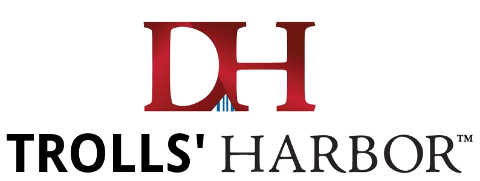

THE theme of "patent trolls" -- entities that do nothing but lawsuits and threats of lawsuits -- is still a 'thing'. Yes, the USPTO is aware of the problem and even the US Supreme Court uses the term "trolls". Here in Europe the press rarely mentions the problem, which is being exacerbated by the EPO. Patent trolls are on the rise in Germany and London too has become a "hot destination" for trolls. Most vulnerable to these are SMEs, which are less capable of affording justice (legal process) and have less money to shell out for 'protection'.
"Patent trolls are on the rise in Germany and London too has become a "hot destination" for trolls."Thankfully, some of the trolling 'sector' is drifting eastwards to China. It's not a good thing for China, but it seems to be a side effect of a misguided patent policy which attracted low-quality patents in large numbers. When one has low-quality patents in large numbers one can simply use the sheer amount of them -- irrespective of underlying quality -- to threaten ruinous litigation and thus extort money for settlements. This seems to be the business model of Dominion Harbor, which is a malicious patent troll that strongly dislikes me, worships other trolls, and associates with rather unpleasant people. IAM wrote the other day that "[a]fter purchase of 4,000 former Kodak patents from IV last year, Dominion is building quite a portfolio."
IV is Intellectual Ventures, the world's largest patent troll, which came from Microsoft. "Proud to announce our latest acquisition," the troll said. "Dominion Harbor Acquires Leading NEC LCD Portfolio with more than 1,200 assets..."
"Patent 'aggregators' such as these are of no worth unless they become trolls or pass their so-called 'assets' to trolls. That's how Intellectual Ventures came into existence (buying lots of patents from universities and failed companies)."One can expect them to shake down companies using these patents. They're just a patent troll, like Intellectual Ventures that they're connected to. One can guess where they are based. Intellectual Discovery (ID) in the meantime -- not to be mistaken for IV -- has been a miserable failure so far. It's a total waste of South Korea's money and although it is not a troll itself, industry insiders worry that it may feed patent trolls sooner or later, causing damage to the South Korean economy. According to IAM, ID is in somewhat of a disarray (symptoms include leadership shuffles like in RPX, which might be sold to a troll). There are analogous entities and worries in India right now. Patent 'aggregators' such as these are of no worth unless they become trolls or pass their so-called 'assets' to trolls. That's how Intellectual Ventures came into existence (buying lots of patents from universities and failed companies).
Speaking of NEC patents (which the above troll just bought), a former IAM writer said: "There may be a Foxconn link to this. NEC transferred a whole bunch of mostly display-related patents to Gold Charm in 2012... [...] Foxconn subsidiary Gold Charm bought the patents for $122m. Later asserted some against Funai, Mitsubishi, & Toshiba. Not heard much about them since..."
"Historically, many entities Microsoft passes patents to turn out to be attacking GNU/Linux."As a bonus, mind this new report from the Microsoft-connected patent troll Acacia. It's now resorting to buybacks, which is never a good sign. Are shareholders walking away? IV too has suffered a lot (lost many software patents, lawsuits and managers, not to mention the massive rounds of layoffs). Based on yesterday's blog post from IAM, Microsoft now passes patents to Uber (just like it passes them to patent trolls quite a lot), which is itself suffering record losses. To quote the relevant paragraphs:
According to the USPTO assignment database, Uber has most recently picked up a package of 17 assets from Microsoft. That follows a 2015 deal between the two companies which saw Uber pick up some IP as part of a broader business agreement.
The acquisition from Microsoft followed another deal between Uber and AT&T for 13 assets - the third significant acquisition that the ride-sharing giant has made from the telecoms giant with the company picking up well over 100 assets.
Although as the 2015 Microsoft deal shows that Uber’s IP head John Mulgrew has been focused on bolstering the company’s patent position for a while, the focus on building up its portfolio in the secondary market has intensified since the hire of former Google and Motorola IP executive Kurt Brasch in September 2016. Mulgrew is understood to have led on the most recent deal with Microsoft along with Uber IP lawyer Rakesh Michael.